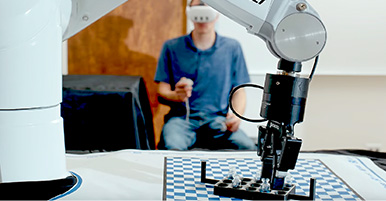Citation
Chaudhri, V. K., Heymans, S., & Yorke-Smith, N. (2015). Reasoning about interruption of biological processes. Biologically Inspired Cognitive Architectures, 12, 34-42. doi:10.1016/j.bica.2015.04.004
Abstract
Humans are able to apply abstract reasoning patterns to learned knowledge and principles, and infer correct results. Our work is motivated by the vision of automated asking and answering of questions related to a biology textbook—a capability which requires application of abstract reasoning patterns. For example, biological processes such as cellular respiration have an intricate structure that defines the ordering among different steps and the participants in each step. A person who understands the process is expected to be able to reason with how the process is affected if one or more steps are interrupted. In this article we analyze a family of questions about process interruption, and present reasoning patterns that an automated reasoning system can use to answer them. Our reasoning patterns rely on the order of steps of the process and the participants of those steps. We suggest that this approach leads to more intuitive and simpler reasoning than an approach of based on theory of intentions, or an approach that relies on qualitative simulation. Our work is a step toward a system that can discuss answers to questions and assist human learners of biology.


